Clinical Skills Practice
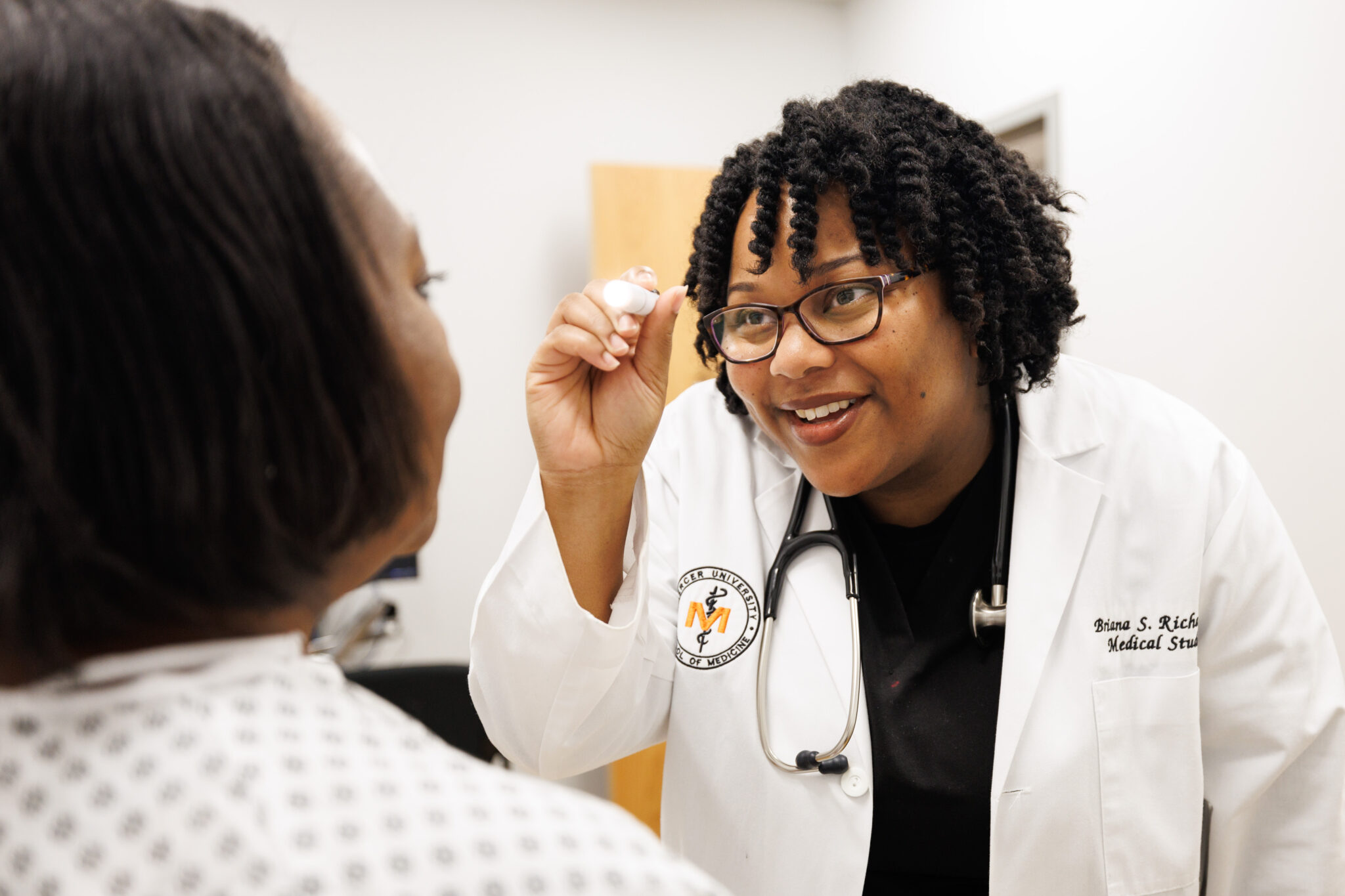
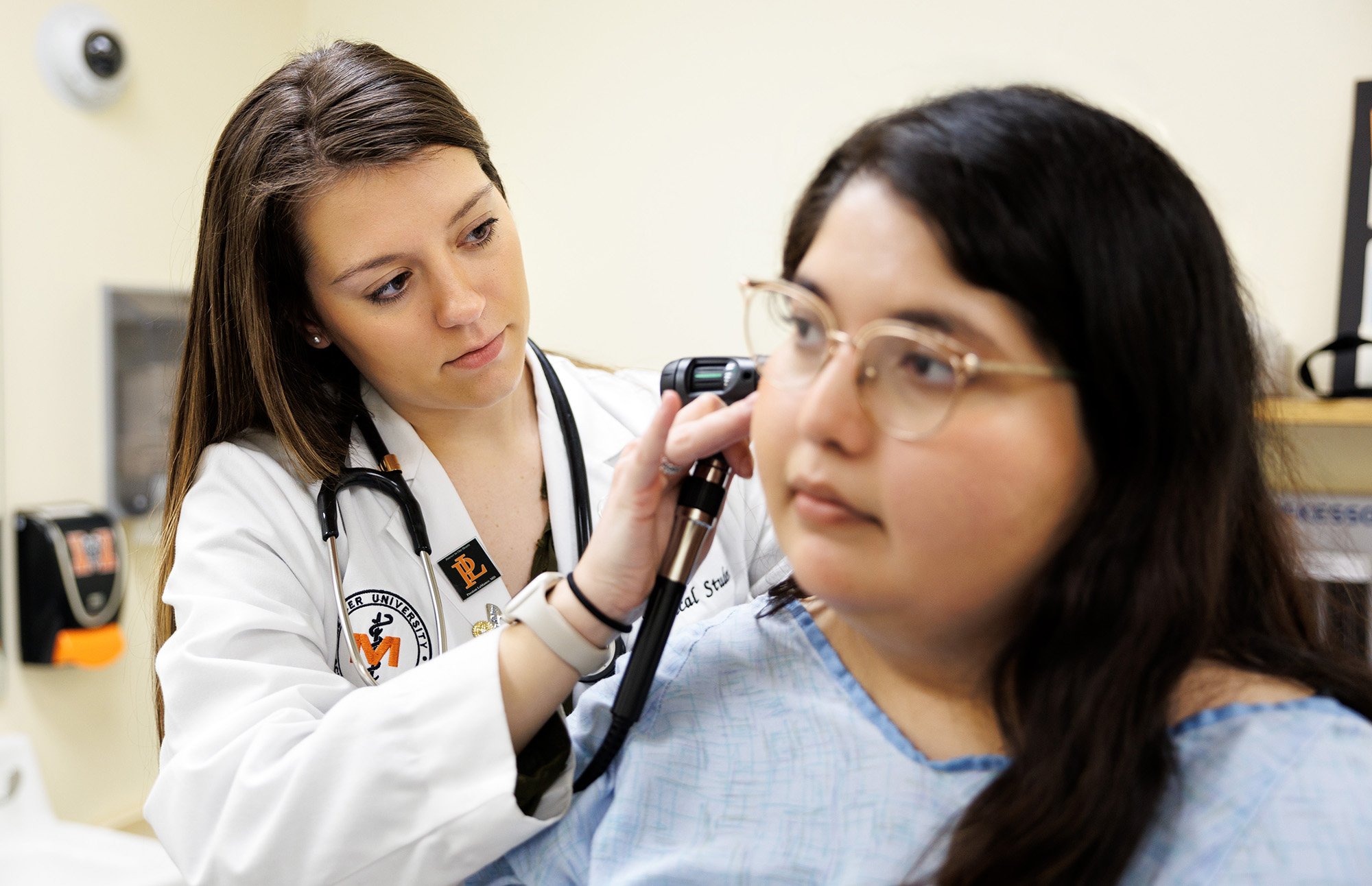
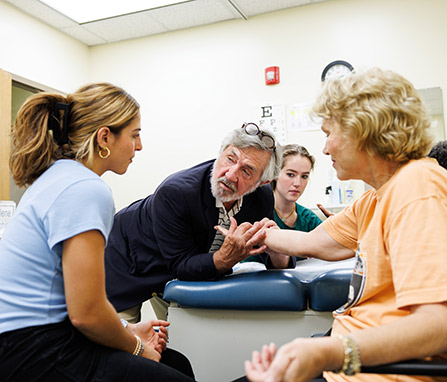
Mercer’s clinical skills program provides hands-on training in patient care through standardized patient experiences. Each campus features fully equipped exam rooms with examination tables and standard clinic tools.
Students begin clinical experiences within the first few weeks of medical school, reinforcing and bringing to life the cases they see in their patient-based learning groups. Through encounters with standardized patients (SPs), they develop practical abilities essential to assessing, diagnosing, and caring for patients, including history-taking, physical examinations, clinical investigations, diagnostic reasoning, communication, teamwork and professionalism.
SPs simulate real patient interactions in a consistent, controlled way, allowing students to practice clinical procedures in a risk-free environment. As part of the curriculum, students interview, examine, and are graded by SPs, receiving structured feedback on their bedside manner, communication, and professional skills.
Each interaction can be recorded with cameras and sound equipment, enabling faculty to observe live or review recordings later to provide additional guidance and feedback.
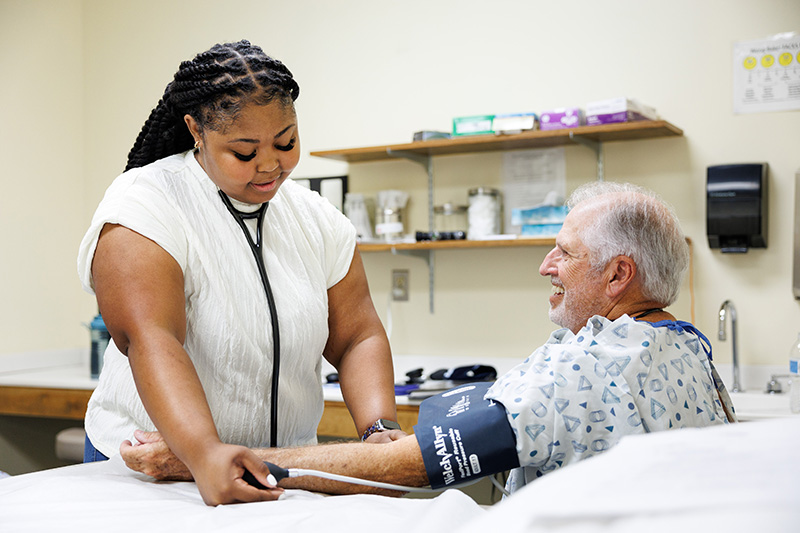
Educational Benefits
- Early Skill Development:Within the first few weeks of medical school, students engage with SPs to learn basic interaction skills, focusing on interviewing techniques and physical examination skills.
- Safe Learning Environment: The controlled environment provided by SPs allows students to practice and refine their skills without the pressure and fatigue associated with actual patient interactions.
- Consistency in Training: By standardizing the portrayal of patients, SPs ensure that each student receives a consistent and comprehensive learning experience.
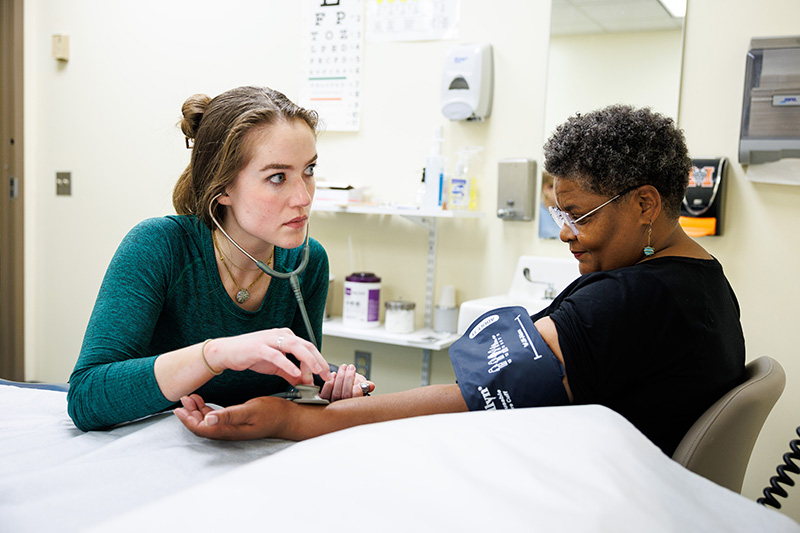
Standardized Patients
The Standardized Patient (SP) Program is an integral part of the curriculum at Mercer University School of Medicine (MUSM). Standardized Patients are community members who are trained to portray patients in a consistent manner, ensuring a uniform educational experience for each student. They play a crucial role in shaping the future of Georgia's physicians.